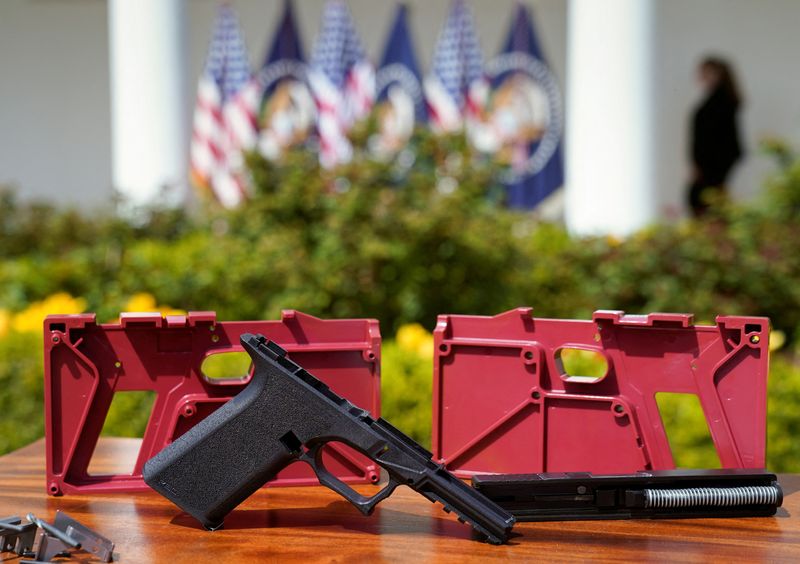US Supreme Court considers legality of Biden’s ‘ghost guns’ restrictions
2024.10.08 06:17
By Andrew Chung and John Kruzel
WASHINGTON (Reuters) – The U.S. Supreme Court is set on Tuesday to consider the legality of a regulation issued by President Joe Biden’s administration cracking down on “ghost guns,” largely untraceable firearms whose use has proliferated in crimes nationwide.
The administration is appealing a lower court’s decision declaring that the U.S. Bureau of Alcohol, Tobacco, Firearms and Explosives exceeded its authority in issuing the 2022 rule targeting parts and kits for ghost guns, which can be purchased online and quickly assembled at home.
Plaintiffs including parts manufacturers, various gun owners and two gun rights groups – the Firearms Policy Coalition and Second Amendment Foundation – sued to block the ATF rule in federal court in Texas.
The regulation requires manufacturers of firearms kits and parts, such as partially complete frames or receivers, to mark their products with serial numbers, obtain licenses and conduct background checks on purchasers, as already required for other commercially made firearms.
The rule clarified that these kits and components are covered by the definition of “firearm” under a 1968 federal law called the Gun Control Act and that commercial manufacturers of such kits must become licensed.
Ghost guns are particularly attractive to people prohibited by law from buying firearms, including minors and individuals convicted of violent crimes, according to police and prosecutors. Law enforcement authorities have a hard time tracing these weapons when they are discovered at a crime scene back to an individual purchaser because ghost guns lack the serial numbers present on other firearms.
The administration has called the rule critical for combating a U.S. “explosion of crimes involving ghost guns.”
Fort Worth, Texas-based Judge Reed O’Connor invalidated the rule in 2023, ruling that the ATF had impermissibly “rewritten the law” without congressional input.
The New Orleans-based 5th U.S. Circuit later upheld O’Connor’s decision, faulting the agency for attempting to “take on the mantle of Congress to ‘do something’ with respect to gun control. But it is not the province of an executive agency to write laws for our nation.”
The Supreme Court in 2023 reinstated the rule pending the administration’s appeals.
In a similar gun-related case, the Supreme Court in June rejected a federal rule banning “bump stocks” – devices that enable semiautomatic weapons to fire rapidly like machine guns.

The United States, with the world’s highest gun ownership rate, remains a nation deeply divided over how to address firearms violence including frequent mass shootings.
In three major rulings since 2008, the Supreme Court has widened gun rights, including a 2022 decision that declared for the first time that the U.S. Constitution protects an individual’s right to carry a handgun in public for self-defense.








